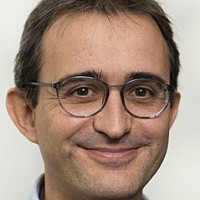UN2023 Water Conference: A house for water?

The House of Water is a podcast recorded in March 2023 at the UN Water Conference exploring how we can represent water at the intersection of arts, politics and science for the “next water governance”.
After queuing for almost two hours to get the badge, I walked for the first time in my life inside the United Nations headquarters’ building in New York with mixed feelings. On the one side, I thought that holding the UN Water Conference at the UN Headquarters was a bold symbolic and political statement: putting water at the centre of the deliberation of the multilateral systems inspired by the principles of universality and international cooperation embodied, at least on paper, by the United Nations. On the other side, the challenges in terms of travelling to New York (visa, costs, …) and accreditation to the conference (only registered institutions could send a limited number of delegates) made be wondering about the actual representativeness of the conference and its deliberation.
Furthermore, inspired by ongoing movements for the recognition of the rights of nature or of rivers, and by Latour’s theory of the Parliament of Things, I was curious to discover who and how at the UN Water Conference inside would or could represent water and speak on its behalf. The idea that nature and its elements like water have rights has not been officially acknowledged in international law, although the UN General Assembly itself has recently made explicitly reference to that. In my opinion, such approach requires an opening to vocabularies and knowledges, like artistic or spiritual expressions, that are not mainstream in UN gatherings and deliberation.
So, I navigated the UN 2023 Water Conference by searching for artistic expressions and performances to explore how different media can help us in representing water and speaking on its behalf. The results of this exploration are recorded in the podcast The House of Water.
Episode 1 was recorded at the World Water Film Festival held at Columbia University a few days before the official opening of the conference. Awarded filmmakers and the festival director share their views on video as a powerful tool to elicit emotions about water and advocate for the importance of water beyond the circle of the usual suspects. Episode 2 features the photographers of #EverydayNile a collective photojournalism project that was featured in the photo exhibition “The Walk of Water” at the UN headquarters. In describing their most iconic photo, the photojournalists emphasise how photography can create different types of connections: among different water uses, across riparian countries, and between different water professionals. Episode 3 was recorded at the United Nations of Rivers, an event organised by TU Delft UNESCO Chair on Water, Ports and Historic Cities. Researchers, activists and policy makers shared their ideas and commitments on how to bring rivers back at the centre of our society. I captured some of those voices and learnt that sometimes it can be useful to turn around the question, asking instead how can a river represent and inspire us. Finally, Episode 4 on The sound of water pays tribute to music and songs, showing how they allow to convey the multiplicity and plurality of waters: songs about water, water carrying sounds and stories, water carriers as musical instruments, and of course water as a source of musical inspiration.
The fact that I encountered and recorded most of these artistic expressions and performances at side events happening outside the UN Headquarters tells how such approaches are still marginal in the international water governance system and deliberation, as also acknowledged in the statement on the UN 2023 Water Conference signed by several NEWAVE colleagues. However, it seems to me that there is a growing attention and curiosity for collaboration and experiments at the intersection of arts, politics and science to imagine and prefigure new ways of understanding and representing nature. This podcast is a small contribution to highlight the relevance of these approaches also for the water sector, so I invite you to listen to it and join the conversation on how these forms of representing water can suggest new principles for the “next water governance”.
A big thanks to Laurens Nijzink for editing the podcast, to Cristian Olmos Herrera for the logo, and to the Dutch Ministry of Infrastructure and Water Management for funding this project.




